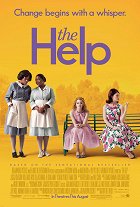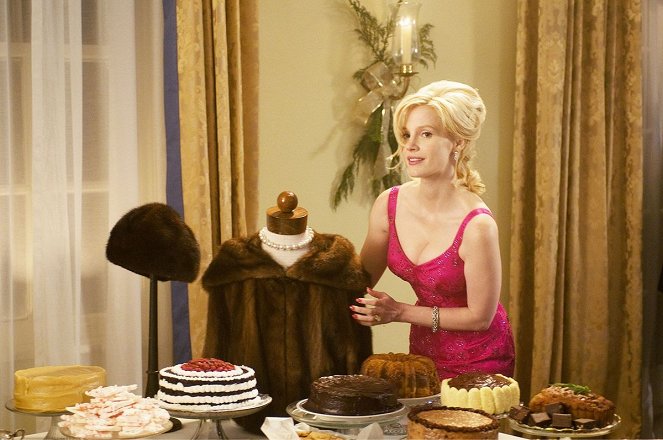Directed by:
Tate TaylorScreenplay:
Tate TaylorCinematography:
Stephen GoldblattComposer:
Thomas NewmanCast:
Emma Stone, Viola Davis, Bryce Dallas Howard, Octavia Spencer, Jessica Chastain, Ahna O'Reilly, Allison Janney, Anna Camp, Christopher Lowell, Cicely Tyson (more)Plots(1)
Based on one of the most talked about books in years and a #1 New York Times best-selling phenomenon, “The Help” stars Emma Stone as Skeeter, Viola Davis as Aibileen and Octavia Spencer as Minny — three very different, extraordinary women in Mississippi during the 1960s, who build an unlikely friendship around a secret writing project that breaks societal rules and puts them all at risk. From their improbable alliance a remarkable sisterhood emerges, instilling all of them with the courage to transcend the lines that define them, and the realization that sometimes those lines are made to be crossed — even if it means bringing everyone in town face-to-face with the changing times. (official distributor synopsis)
(more)Videos (57)
Reviews (10)
Despite the fact that Skeeter's story openly appeals to emotions through its narrative, soundtrack, and gradually revealed small details, I am surprised by how straightforward it actually is. There is no hiding of the main theme in a variety of subplots, no treading water. From the first significant scene, it delivers a clear message at a fast pace and easily maintains it for over two hours. As a result, the triple catharsis feels even more impactful. Perhaps if there had been a more definitive, slightly more fateful conclusion, I would have been fully satisfied. In that case, I felt that I could have handled an additional five minutes of voiceover in a slightly distant future during the end credits. Nevertheless, The Help won me over not only with its storytelling power but also with its flawless casting, even in the smallest roles.
()
When I watched the movie "Black and White World," I wondered how Americans perceive it. I am sure they see it as a drama that depicts a story, but do they realize that this is about their parents, or maybe even themselves? Are they capable of acknowledging that in their relentless freedom they were actually quite nasty and despicable? A nation that is so proud of itself understood equality 40 years ago, yet in some states, they still reject it. But to reassure us that they are progressive, they elect a black - pardon, African American - president, who is still, however, a mixed race. Sometimes I think how great it would be to live in America, but sometimes this idea deeply repulses me. Everything has its merits, but the story of the black women, who are no worse than any of us - and perhaps even better - is truly a powerful testimony that manages not to get lost in the swamp of pathos. The outstanding performances of the actors were rightfully awarded an Oscar or at least a nomination. More: http://www.filmovy-denik.cz/2012/04/diar-milovnika-filmu-c-0003-eastwood.html
()
Kind in a black and white way and a little too obtrusive female drama that is occasionally ridiculously naive (there are three types of character; a cheerful black lady with a troubled past endowed with common sense, an affected xenophobic, upper-class white lady and men who we don’t see or, when we eventually do, then they invariably run away from their problems). It rides on the harmless, tearjerker wave, but never delves beneath the surface... We only take a look there in the opening scene and that is by far the best moment in the movie.
()
Yeah, this is the kind of politically correct, high-minded Oscar safe bet where pretty much all the black characters can be compared to the greatest philosophers in history thanks to their human (popular) wisdom, but I can’t help it, I really liked it. In its 146 minutes, it has charm, is entertaining, and has good performances, direction and script. It was nice, but at the Oscars I will root for someone else.
()
An above-average soap opera that, through a sequence of lightweight episodes (not a single scene fully conveys how serious the situation in the South really was), capitalises on the myth of progressive young people who made the United States a better country in the 1960s. The story with a big heart is stuffed into a hermetically sealed bubble conveying the contemporary socio-political context to the trapped characters only through television and radio. The film refuses to take into account what happened in the real world, just as the white ladies refused to acknowledge their servants’ status as human beings enjoying full rights. The Help is even more consistent in denying the existence of bad, bad things than the similarly simplified Precious, unlike which The Help offers a likable white protagonist for the white audience to identify with. I welcome the effort to make a women’s film, though melodramatic only in moments and not in its overall structure, and I respect the need for a purgative spectacle that turns a humiliating defeat into a proud victory, but to accept the simplification of a serious historical subject into almost family entertainment with all of the ideological perversity concentrated into a single ultra-bitch strikes me as supremely conformist. 55%
()



Ads